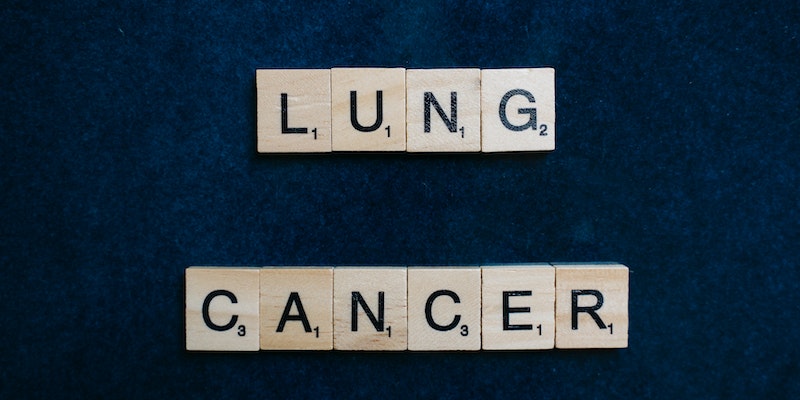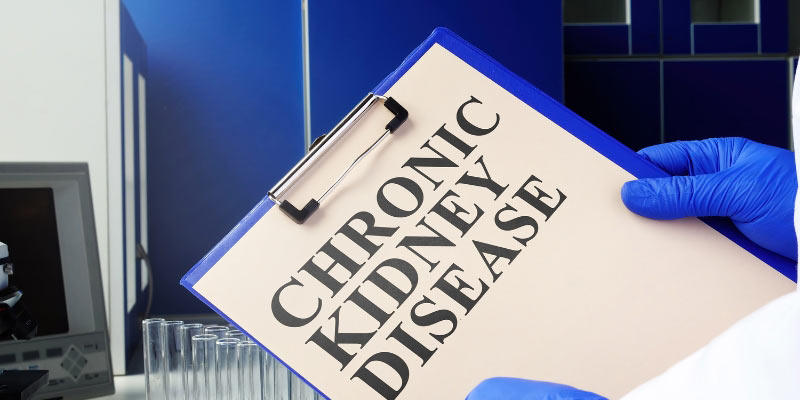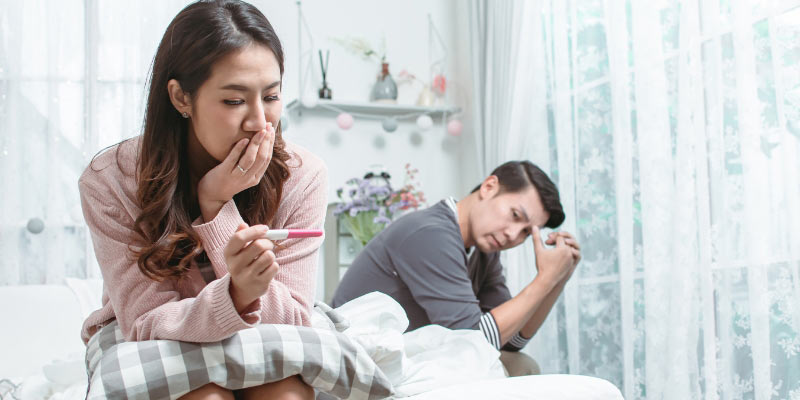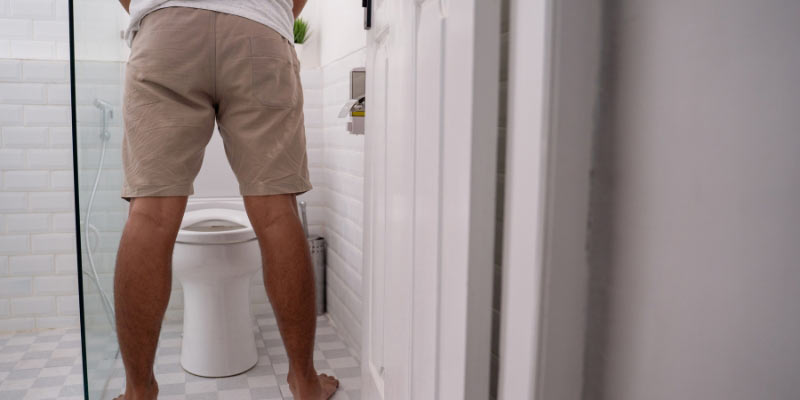
All ages and genders may have accidental peeing or urine incontinence. This illness may be humiliating and life-altering. This detailed post will discuss four common causes of accidental peeing and provide practical solutions. Knowing the reasons and answers might help you restore control and confidence in daily life.
Accidental peeing may be difficult and alienating, but you're not alone. Millions of people worldwide have urine incontinence. Fortunately, lifestyle changes and pharmacological therapies may control and relieve this illness. By highlighting the causes of unintentional peeing and providing solutions, we want to motivate people to seek treatment, enhance their quality of life, and overcome incontinence.
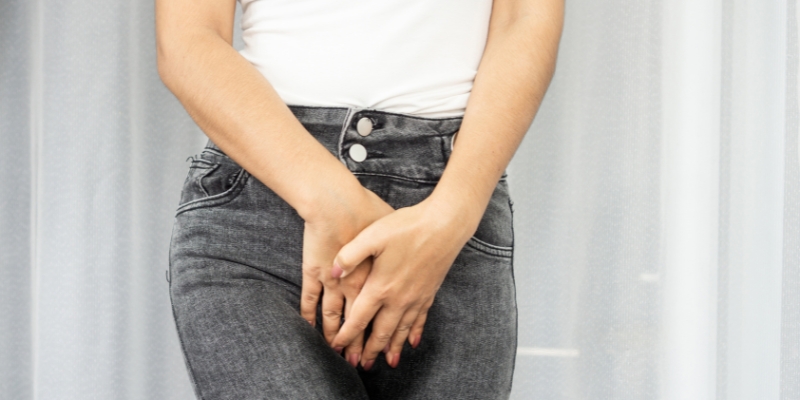
Stress Incontinence:
Stress incontinence causes inadvertent pee leaking when the bladder is pressed. This pressure may arise from coughing, sneezing, laughing, lifting significant things, or exercising. Stress incontinence is generally linked to weak pelvic floor muscles, which support the bladder and regulate urine.
Stress incontinence may be caused by pregnancy, menopause, obesity, and medical disorders. There are numerous ways to control and avoid stress incontinence. Kegel or pelvic floor exercises strengthen bladder-supporting muscles, minimizing leakage. Learning these exercises is simple and may be done quietly throughout the day. Maintaining a healthy weight, stopping smoking, and limiting coffee may reduce pelvic tension and relieve symptoms. Healthcare experts may prescribe drugs or surgery for severe stress incontinence after other conservative methods have been tried.
Urge Incontinence:
An overactive bladder, or urge incontinence, is characterized by a sudden, acute need to pee and involuntary urine leakage. Involuntarily contracting bladder muscles causes an urgent desire to pee. Drinking, eating hot or acidic foods, and stress or worry may cause urge incontinence.
Behavior modification like bladder training may lessen urge incontinence. By progressively extending the duration between toilet trips, bladder training helps the bladder retain pee longer. Retraining the bladder's signaling mechanism reduces restroom visits. Healthcare experts may also prescribe nutrition, physical therapy, medicines, or nerve stimulation to treat overactive bladder. Some drugs relax bladder muscles or inhibit urgent nerve impulses. Neuromodulation or bladder Botox injections may be used if these methods fail.
Overflow Incontinence:
Little quantities of pee drip or leak when the bladder doesn't empty correctly. Urinary tract obstructions or bladder nerve injury can cause this disorder. Common reasons include a big prostate in males, urinary stones or tumors, and certain drugs that affect bladder emptying.
Overflow incontinence is usually treated by identifying and addressing the cause. Men with enlarged prostates may need medication or surgery to clear their bladders. Surgery may be needed to remove urinary stones or tumors and restore urine flow. Intermittent catheterization may be advised for overflow incontinence. This method ensures bladder emptying and minimizes leaks.
Functional Incontinence:
When physical or cognitive problems impede timely toilet visits, functional incontinence develops. This incontinence is commonly caused by aging or other issues that impair movement or cognition. Functional incontinence often results from mobility problems, dementia, or cognitive impairments.
To treat functional incontinence, one must improve their quality of life and meet their demands. Functional incontinence patients need healthcare and home caregivers. They can help with restroom trips, make home changes, and show empathy to retain dignity. Healthcare practitioners may provide urgency-reducing medicines or other treatments for functional incontinence.
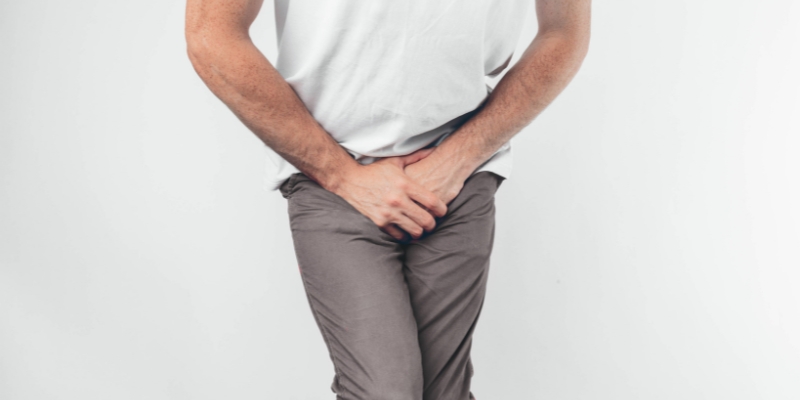
Medications for Urinary Incontinence: What You Need to Know
When lifestyle changes fail, medications may help manage urine incontinence. Each incontinence medicine targets a unique issue. Anticholinergic drugs relax bladder muscles, lowering urine urgency and frequency, making them useful for overactive bladders.
Beta-3 agonists, another family of drugs, relax and expand the bladder, helping with urge incontinence. HRT may also be administered for postmenopausal women with incontinence due to hormonal changes. Consult a doctor to discover which drug is best for your incontinence and medical history. Consider side effects with your doctor to make an educated treatment plan choice. Medication may be helpful.
Surgical Interventions: When Are They Necessary?
Surgery may be needed to treat urinary incontinence when conservative therapies fail. Stress incontinence surgery often involves sling implantation. Slings support the urethra and bladder neck, minimizing pee leakage during stress incontinence activities like coughing or carrying heavy things.
An artificial urinary sphincter is another treatment that helps men with stress incontinence following prostate surgery. These devices regulate urine flow like the sphincter. Surgical operations are risky and should only be done after a comprehensive review. Surgery should be based on severity, advantages, and personal preferences.
Bladder Control Devices and Products:
Bladder control products help people manage urine incontinence comfortably and with dignity. Absorbent pads or underpants are often used to prevent urine leaks. These come in different sizes and absorbencies to suit individual requirements. To empty the bladder, some people utilize urinary catheters, tiny tubes put into the urethra. Patients with mobility or medical concerns may benefit from them.
Men with severe incontinence may use penile clamps to limit urine flow. Wearable gadgets that monitor bladder activity and remind you to use the toilet have advanced in recent years. The individual's demands, incontinence type, and severity determine the best bladder control products and devices.
Coping Strategies for Emotional and Psychological Effects:
Incontinence may affect people emotionally and psychologically. Embarrassment, frustration, worry, and sadness are prevalent. Managing incontinence requires coping with these feelings. Open communication with doctors, friends, and family is crucial. Sharing your struggles and getting assistance may reduce stress.
Additionally, mindfulness and relaxation help decrease stress, which can worsen incontinence symptoms. Enjoyable activities increase self-esteem and well-being. Incontinence support groups provide a secure area to exchange experiences and coping skills. Managing incontinence requires emotional and psychological understanding, and requesting assistance is a show of strength.
Conclusion:
Accidental peeing may be difficult and disruptive, but aid and good management are available. Effective management and treatment of stress, urge, overflow, and functional incontinence begin with understanding the reasons. If you or a loved one is accidentally peeing, get medical assistance and explore options.
Remember that incontinence management is not one-size-fits-all. It usually involves many tactics adapted to your condition and demands. Lifestyle changes, behavioral strategies, drugs, or medical treatments may help you regulate your bladder and live a more confident and comfortable life. Stop letting incontinence hold you back—start controlling and improving your urinary health now.
